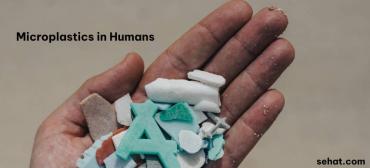Frequently Asked Questions About Pacemakers and Implantable Cardioverter Defibrillators (ICDs)
Some frequently asked questions about pacemakers and ICDs:
-
Do cellular phones interfere with pacemakers or ICDs? The American Heart Association states that cellphones available in the United States (less than 3 watts) do not appear to interfere with or damage pulse generators in pacemakers; this issue continues to be studied, however. Generally, it's best to avoid keeping your cell phone in your breast pocket on the side of the device, and it's probably better to use the phone on the opposite ear, as well.
-
Do pacemakers or ICDs need to be adjusted periodically? Some devices may need to be adjusted if a person's medical condition or lifestyle changes. The overwhelming majority of adjustments are performed noninvasively using a device called a programmer, which is essentially a very specialized computer that communicates with the pacemaker or ICD using magnetic signals via a "wand" or loop placed over the device. Your doctor will instruct you about the schedule of follow-up visits you should keep based on your condition and type of device. In addition, you may participate in telephonic assessment of your device on a periodic basis.
-
When replacing a pacemaker or ICD, are the leads also replaced? (Leads are the actual wires that carry the electrical charges to areas of the heart.) If the original leads are functioning properly, in most cases, they will be left in place and reattached to the new device.
-
When do I have to replace my pacemaker or ICD? Most devices will last at least five to seven years, depending on use, after which the battery or pulse generator will need to be replaced. Replacing a pacemaker generator may be done on an outpatient basis or may include an overnight stay in the hospital.
-
Can I travel with my pacemaker or ICD? Yes, you can travel by air with your device and drive a car if cleared by your doctor. Airport security detectors are generally safe, but let airport security staff know you have a pacemaker/ICD and discuss the appropriate screening procedure. If selected to be screened by handheld wand, you should politely remind the screener that these wands should not be held over the device area for more than a few seconds. You should be sure to always have your identification card with you wherever you go. Persons with ICDs may not be allowed to drive unless cleared by their doctor.
-
Can I exercise with a pacemaker? Upon consulting your doctor, you may be able to enjoy moderate exercise with your pacemaker or ICD, including housework and yard work.
-
Will I feel the pacemaker or ICD? At first, you may feel the weight of the device in your chest. However, over time, most people become accustomed to the way it feels. The device generator is very small, about the size of two small silver dollars stacked on top of each other, and weighs about an ounce or less, depending on the make and model of the device. ICDs are typically slightly larger in size compared to a pacemaker. If the ICD sends a shock to the heart or "fires," the person will feel this as a jolt or kick in the chest.





















